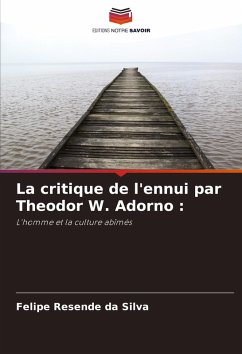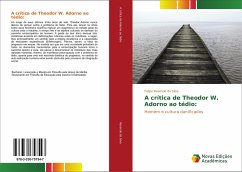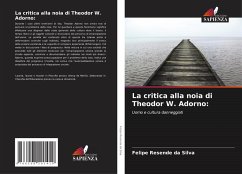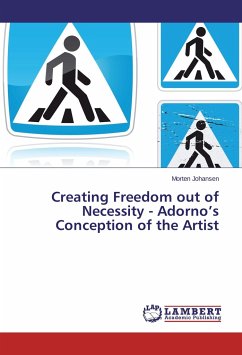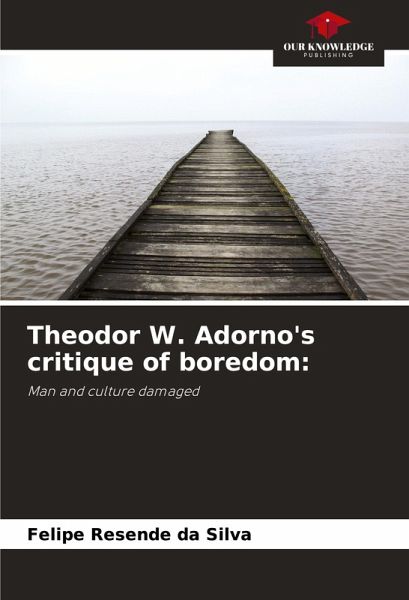
Theodor W. Adorno's critique of boredom:
Man and culture damaged
Versandkostenfrei!
Versandfertig in 6-10 Tagen
43,99 €
inkl. MwSt.

PAYBACK Punkte
22 °P sammeln!
Throughout the last thirty years of his life, Theodor Adorno never stopped thinking about the problem of boredom. For him, looking at this phenomenon means making a diagnosis of the general state of culture in which work, free time and cultural objects are deviating from man's emancipatory path. The loss of the ethical content of these three instances leads to chronic deformations of individuals, mainly denying them a meaning for their own existence and the ability to have experiences (Erfahrungen). This puts the idea of progress into question. To the extent that a society with all the necessa...
Throughout the last thirty years of his life, Theodor Adorno never stopped thinking about the problem of boredom. For him, looking at this phenomenon means making a diagnosis of the general state of culture in which work, free time and cultural objects are deviating from man's emancipatory path. The loss of the ethical content of these three instances leads to chronic deformations of individuals, mainly denying them a meaning for their own existence and the ability to have experiences (Erfahrungen). This puts the idea of progress into question. To the extent that a society with all the necessary elements for human emancipation takes the opposite path, it starts to dehumanize individuals in the most varied ways. Adorno, in expressing concern about the problem of boredom, points to an unresolved dialectic of progress, in the sense that human self-realization is being obstructed by the process of social integration.








